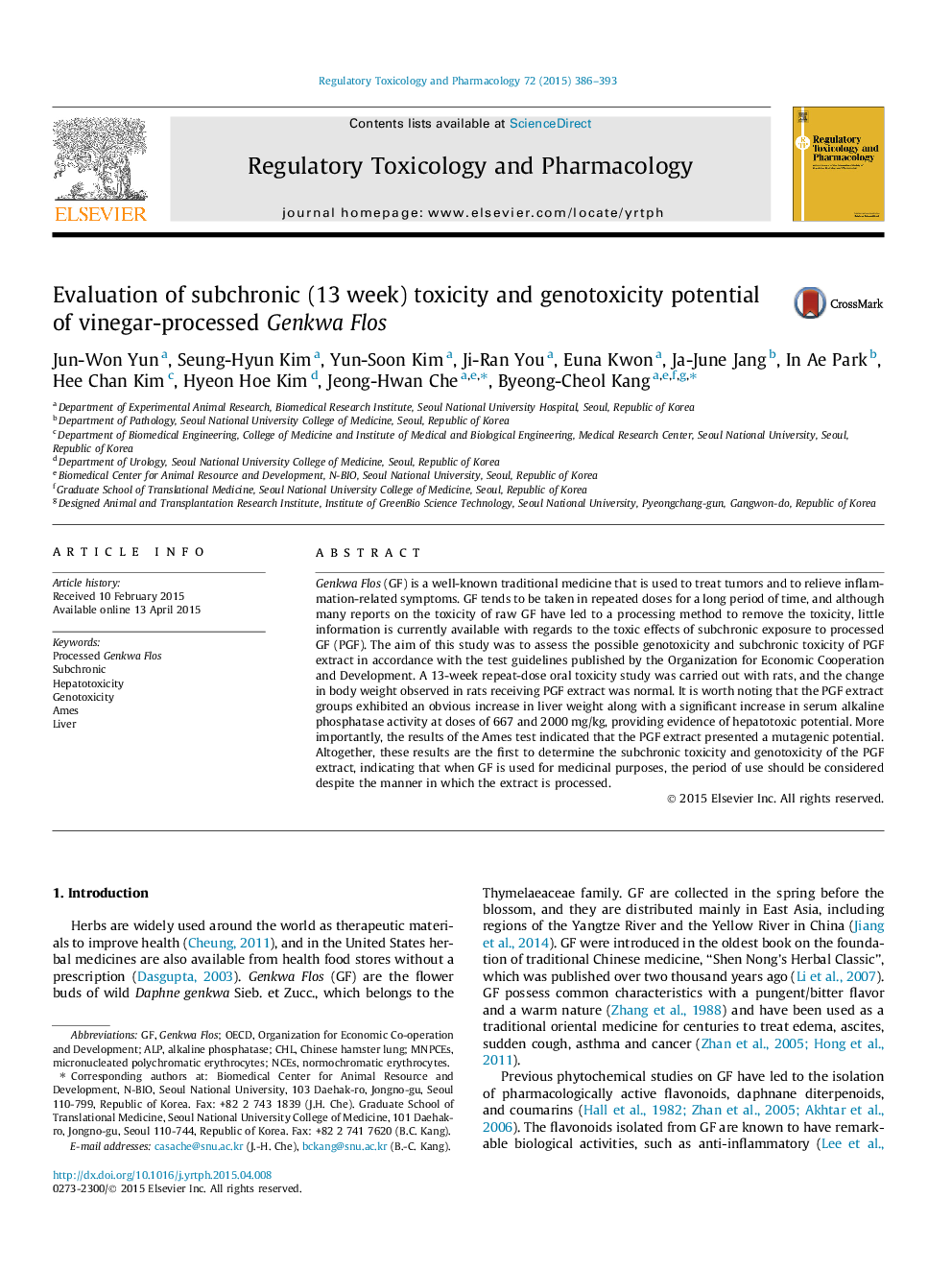| Article ID | Journal | Published Year | Pages | File Type |
|---|---|---|---|---|
| 5856740 | Regulatory Toxicology and Pharmacology | 2015 | 8 Pages |
â¢Subchronic exposure of processed Genkwa Flos showed serum ALP activity rise.â¢Liver weight was increased by subchronic exposure of processed Genkwa Flos.â¢Processed Genkwa Flos exerted mutagenic potential in Ames assay.â¢Processed Genkwa Flos was not genotoxic in micronucleus and chromosome aberration assay.
Genkwa Flos (GF) is a well-known traditional medicine that is used to treat tumors and to relieve inflammation-related symptoms. GF tends to be taken in repeated doses for a long period of time, and although many reports on the toxicity of raw GF have led to a processing method to remove the toxicity, little information is currently available with regards to the toxic effects of subchronic exposure to processed GF (PGF). The aim of this study was to assess the possible genotoxicity and subchronic toxicity of PGF extract in accordance with the test guidelines published by the Organization for Economic Cooperation and Development. A 13-week repeat-dose oral toxicity study was carried out with rats, and the change in body weight observed in rats receiving PGF extract was normal. It is worth noting that the PGF extract groups exhibited an obvious increase in liver weight along with a significant increase in serum alkaline phosphatase activity at doses of 667 and 2000Â mg/kg, providing evidence of hepatotoxic potential. More importantly, the results of the Ames test indicated that the PGF extract presented a mutagenic potential. Altogether, these results are the first to determine the subchronic toxicity and genotoxicity of the PGF extract, indicating that when GF is used for medicinal purposes, the period of use should be considered despite the manner in which the extract is processed.
